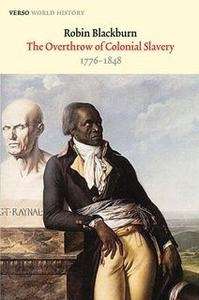The Overthrow of Colonial Slavery: 1776-1848

Resumen del libro
"One of the finest studies of slavery and abolition. Eric Foner
In 1770 a handful of European nations ruled the Americas, drawing from them a stream of exotic products and popular pleasures. Some two and half million black slaves, imprisoned in plantation colonies, toiled to produce the sugar, coffee, cotton, ginger and indigo craved by Europeans.
By 1848 the major systems of colonial slavery had been swept away either by independence movements, slave revolts, Abolitionist movements or some combination of all three. Robin Blackburn shows how in some cases colonial rule was overthrown while slavery flourished (as in the South of the United States and in Brazil), in others slavery was suppressed but colonial rule conserved (the British West Indies, French Windwards) while in French St. Domingue, the future Haiti, and in Spanish South and Central America both colonialism and slavery were defeated.
This narrative of slave liberation and American independence highlights the pivotal role of the first emancipation in the French Antilles in the 1790s, the parallel action of slave resistance and metropolitan Abolitionism and the contradictory implications of slaveholder patriotism.
The dramatic events of this epoch are examined from an unexpected vantage point, showing how the torch of anti-slavery passed from the medieval communes to dissident Quakers, from African maroons to radical pirates, from Granville Sharp and Ottabah Cuguano to Toussaint L'Ouverture, from the black Jacobins to the Liberators of South America, and from the African Baptists in Jamaica to the Revolutionaries of 1848 in Europe and the Caribbean.








